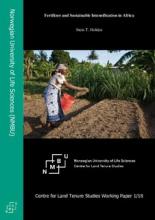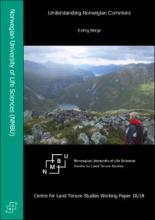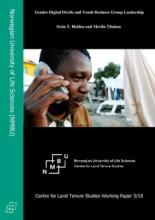Land Library
Welcome to the Land Portal Library. Explore our vast collection of open-access resources (over 74,000) including reports, journal articles, research papers, peer-reviewed publications, legal documents, videos and much more.
/ library resources
Showing items 37 through 45 of 562.The government of (post)socialist Laos has conceded more than 1 million hectares of land—5 percent of the national territory—to resource investors, threatening rural community access to customary lands and forests.
Land cover data is widely used for the design and monitoring of land use policies despite the incapability of this type of data to represent multiple land uses and land management activities within the same landscape.
Statutory recognition of rural communities as collective owners of their lands is substantial, expanding, and an increasingly accepted element of property relations.
The paper investigates the important role of fertilizer to enhance sustainable intensification and food security in Sub-Saharan Africa based on a multi-disciplinary literature review.
Continued high population growth in already densely populated rural areas in parts of Sub-Saharan Africa makes it harder for youth to choose agriculture as their main source of income. We investigate whether near landless youth can still access rented land as a complementary source of income.
The paper reviews the development of the legal status of Norwegian commons from the first known legislation on commons. The development can be divided into 5 periods.
We assess the gender difference in mobile phone ownership among youth business group members, and how it affects election into leadership and group board positions in recently established rural youth business groups in northern Ethiopia.
The paper assesses risk tolerance, trust and trustworthiness among male and female youth group members in recently formed primary cooperative businesses in Ethiopia. Male members are found to be more risk tolerant, trusting and trustworthy than females.
We investigate the extent of variation in output sharing in land rental contracts and alternative hypotheses to explain this variation. Close to half of the rental contracts in our study in northern Ethiopia have output shares that deviate from the dominant 50-50 equal sharing.







